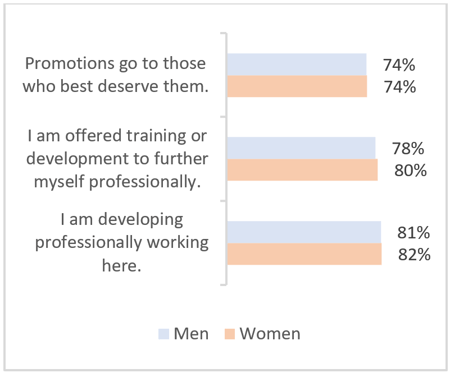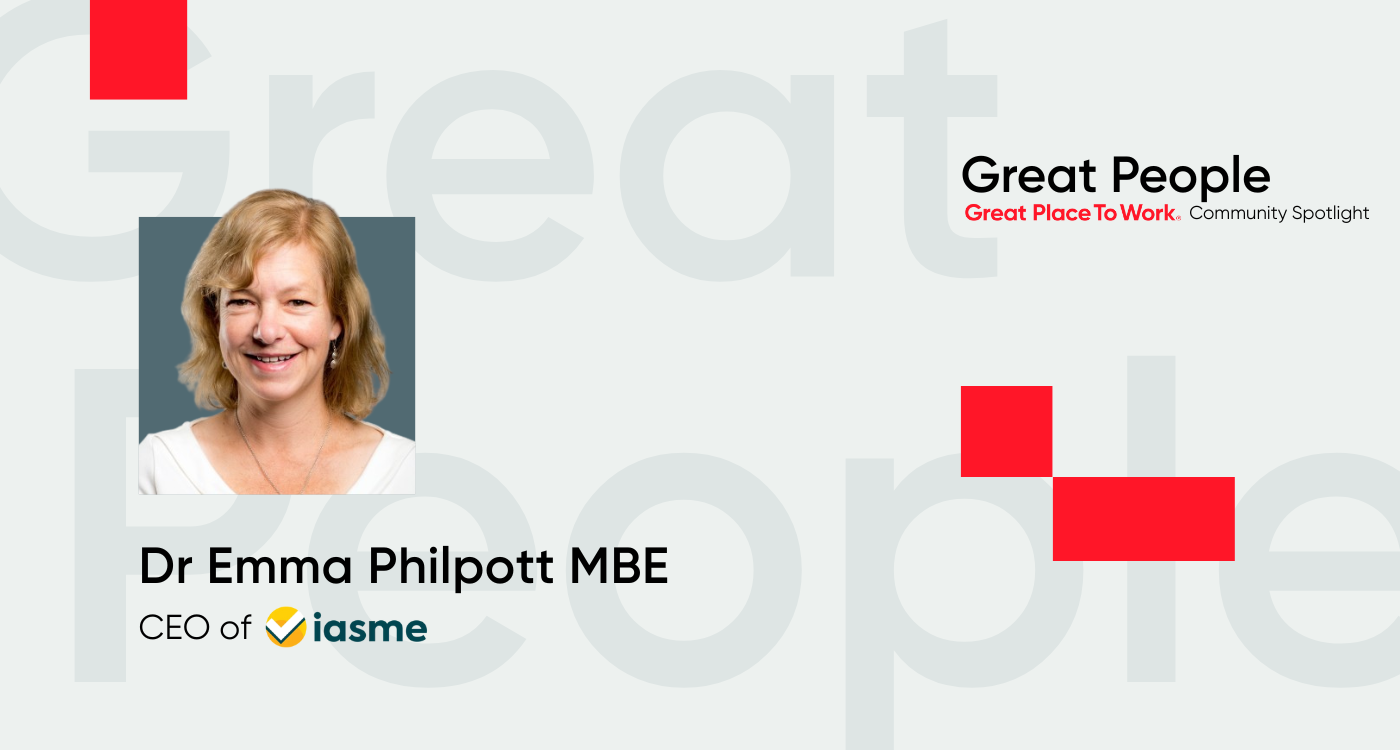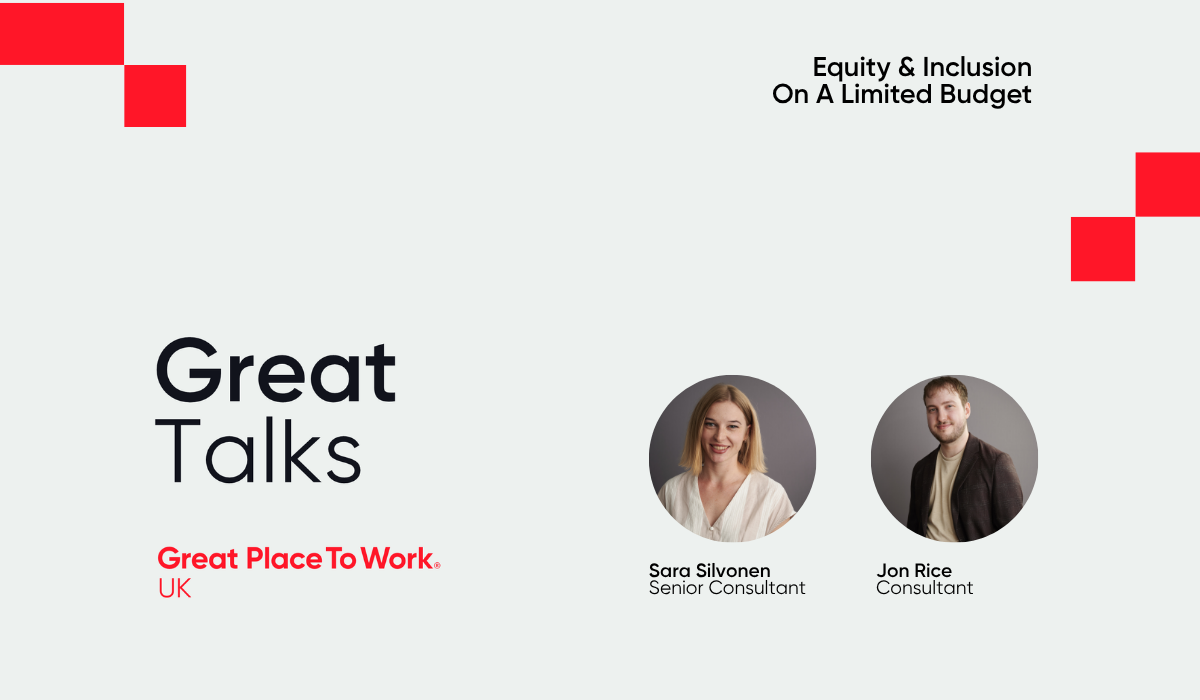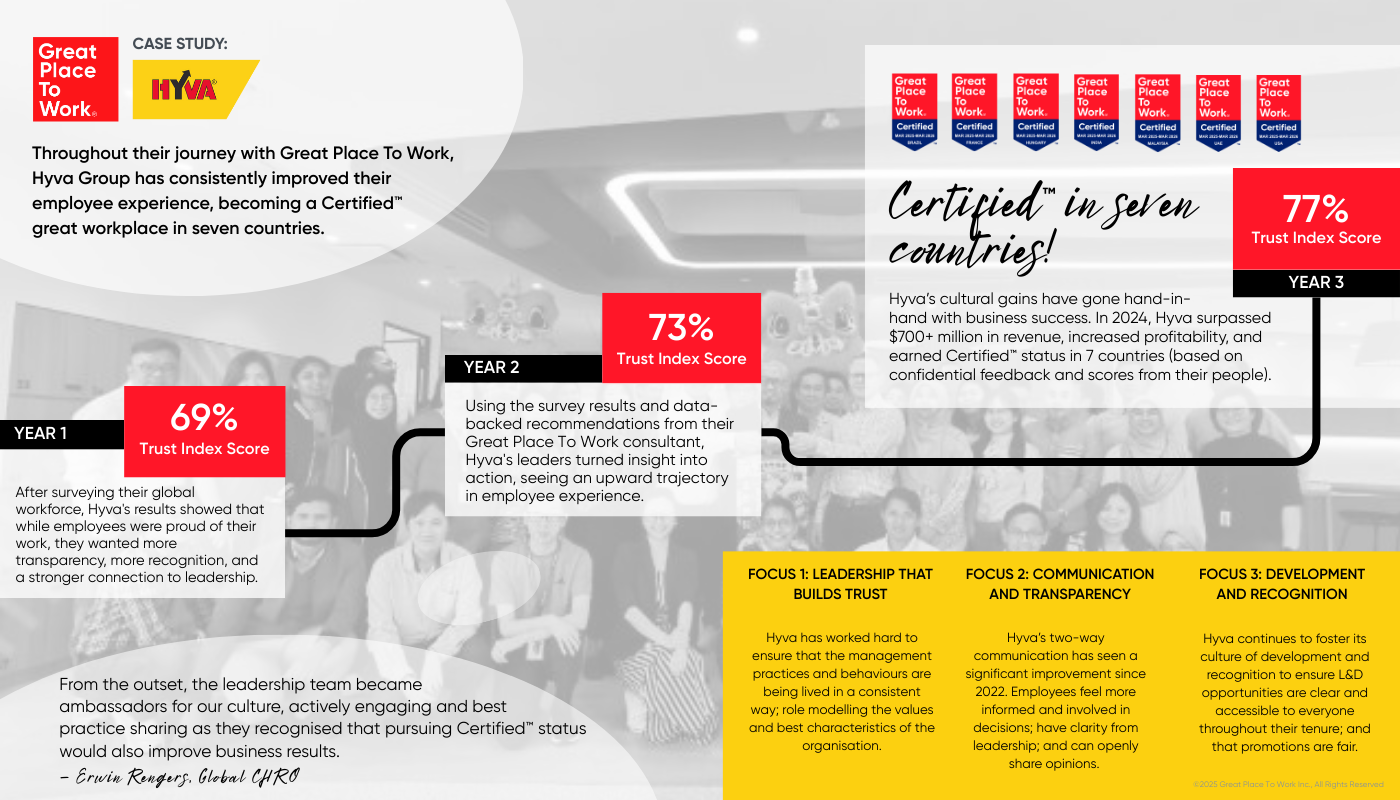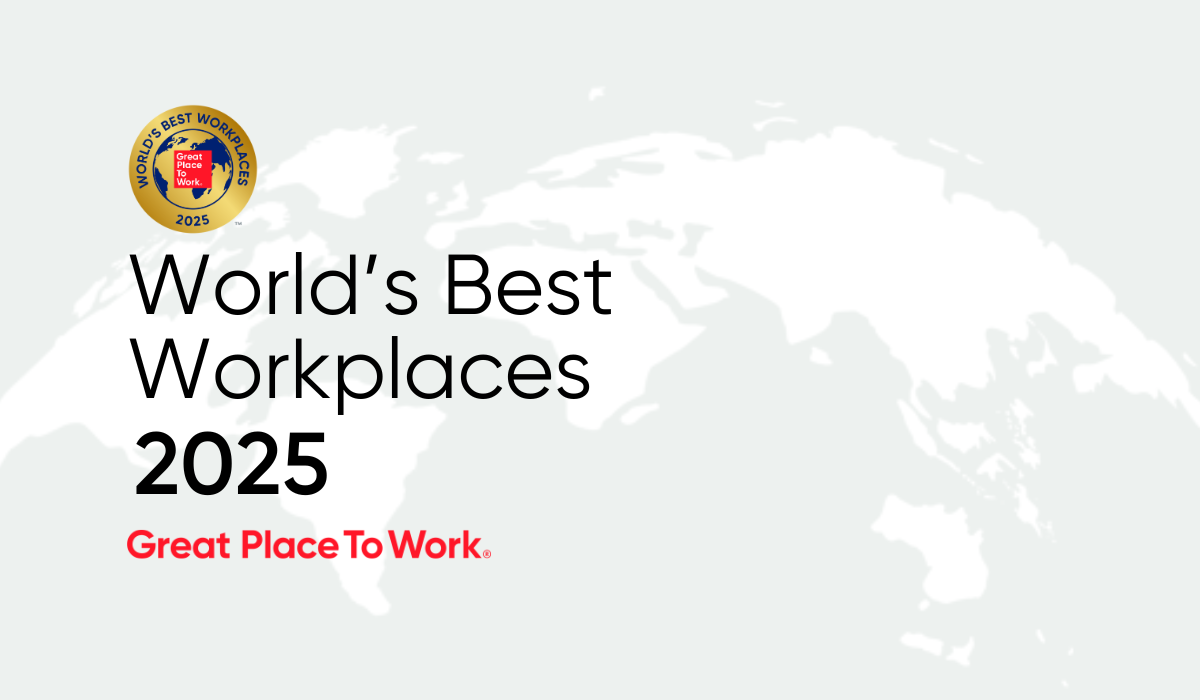The pandemic has had a devastating effect on the career progression, mental and physical health and livelihood of women in the UK and abroad.
Working mothers have been significantly impacted, with 21% of mums more likely to reduce their working hours to accommodate childcare needs than working dads (11%).
Today, we are proud to shine a spotlight on top companies who have addressed gender equality issues and remained committed to building a better future for women at work – all while navigating the global health crisis.
Let’s take a look at some of the organisational best practices and insights that contributed to a positive employee experience in our 2021 UK’s Best Workplaces™ for Women.
Why Equity Should Be a Priority
Equity at work is a key concept in diversity & inclusion (D&I) that is somehow still overlooked by many organisations despite the numerous benefits it brings to a business.
In practice, equity means ensuring that every employee has a level playing field at work, regardless of their gender, ethnic background, age, country of origin or physical ability/disability.
Fair treatment for all helps employees feel valued and supported. It’s critical to developing a highly engaged, satisfied, and innovative workforce. And let’s face it, a happier workforce drives better business results.
In fact, a 2018 study by Boston Consulting Group found that organisations with more diverse management teams are likely to bring in 19% higher revenues owing to greater innovation.
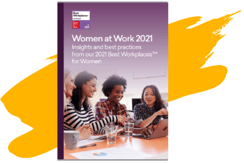 NEW REPORT! Women at Work 2021
NEW REPORT! Women at Work 2021
See what women themselves reported about their workplace experience, plus key practices from the 2021 UK’s Best Workplaces™ for Women.
Quality of Life and Work
In 2020, thousands of women saw an increase in their work at home while having to keep up with their paid job simultaneously. Women juggling the many facets of their life has come to be expected. However, during lockdowns we saw this balancing act taken to a new level.
Let’s look at one working mother named Emily. Emily has two small children whom she cares for while also working from home. During the pandemic, Emily’s days consist of checking emails, performing work-related tasks, supervising home-schooling, washing dishes, preparing food, doing the laundry, cleaning the house…the list goes on and on!
Sound familiar? Chances are you don’t need to read such stories online or watch them on the news to understand Emily. That's why at Great Place to Work®, we aim to promote those organisations who play their part in building fairer workplaces for all.
After evaluating the data, we were pleased to find that, even during the toughest times of the pandemic, female employees at Best Workplaces™ for Women had a positive overall experience at work.
These 114 companies recognised as our 2021 UK’s Best Workplaces for Women introduced and encouraged flexible working schemes for both female and male employees, many implementing tailored programmes that care for and recognise the distinctive needs of their female workers.
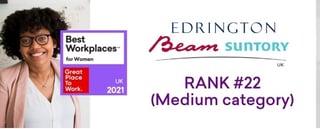 Edrington-Beam Suntory UK, for example, made employee benefits during the pandemic available to those on maternity leave, including their £100 wellbeing allowance, self-care day and Pause Box. Furthermore, those on maternity leave could complete up to 10 paid Keeping in Touch (KIT) days to attend a team meetings or other work-related events and activities.
Edrington-Beam Suntory UK, for example, made employee benefits during the pandemic available to those on maternity leave, including their £100 wellbeing allowance, self-care day and Pause Box. Furthermore, those on maternity leave could complete up to 10 paid Keeping in Touch (KIT) days to attend a team meetings or other work-related events and activities.
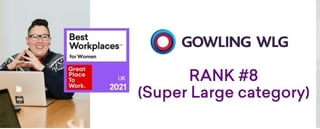 But it’s not only pregnancy or motherhood being addressed in these equitable workforces. A few Best Workplaces™ for Women are now also focusing on the impact that menopause can have on working life. At Gowling WLG (UK) LLP, for instance, a session was held to dispel some of the myths around menopause. It also aimed at educating line managers on how they can support women in the workplace who are going through this uniquely challenging phase of their lives.
But it’s not only pregnancy or motherhood being addressed in these equitable workforces. A few Best Workplaces™ for Women are now also focusing on the impact that menopause can have on working life. At Gowling WLG (UK) LLP, for instance, a session was held to dispel some of the myths around menopause. It also aimed at educating line managers on how they can support women in the workplace who are going through this uniquely challenging phase of their lives.
Closing the Gap
Flexible work schedules and homeworking provide many opportunities, but at times have also resulted in new struggles for working women.
A study by the IFS reported that women spent 2.3 hours more per day to look after children and 1.7 hours more to do housework than men during lockdown. This also led to mothers being more likely to be interrupted during paid working hours because of childcare and other activities (47% of the time) compared to men in the same situation (30% of the time).
We are pleased to see that Best Workplaces™ are providing women with the support needed to grow and thrive during the pandemic! At these organisations, flexibility does not hinder career progression or widen the gender pay gap. Best Workplaces™ for Women are committed to making career development as fair as possible across the board, as proven in the chart below:
Equity at Best Workplaces™
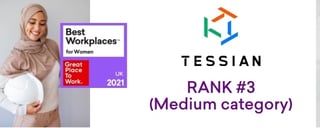 All of our Great Place to Work data is based predominantly on the employee feedback working women and men share with us confidentially during the survey process.
All of our Great Place to Work data is based predominantly on the employee feedback working women and men share with us confidentially during the survey process.
Here's what one of Tessian Limited’s female employees recently told us, which displays the positive effects equity can have on the employee experience:
“People at all levels of seniority are given a good deal of autonomy and accountability. My opinions and thoughts are respected and trusted, I never feel as though someone more senior is steamrolling over my ideas, even though I am relatively junior.”
Women’s Leadership Development
Although we’ve seen progress in the UK, the proportion of women in FTSE 350 leadership teams only reached 29.4% in 2020.
Increasing the proportion of women on the Board is key to improving fairness in the workplace. For that purpose, top organisations are making sure their promotion practices make the talent pipeline as diverse and fair to everyone as possible.
Once again, Best Workplaces™ for Women exhibit a higher number of women in senior positions (38.2%) than what is seen in non-listed organisations (28.1%).
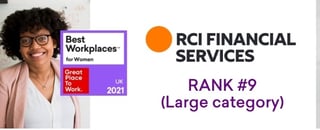 RCI Financial Services, for example, continued to challenge their thinking and built on the people practices aimed at supporting women at work. Job descriptions moved to gender bias neutral, with leaders focused on ensuring the wording they use internally and externally does not unconsciously deter women or men from applying for roles.
RCI Financial Services, for example, continued to challenge their thinking and built on the people practices aimed at supporting women at work. Job descriptions moved to gender bias neutral, with leaders focused on ensuring the wording they use internally and externally does not unconsciously deter women or men from applying for roles.
In 2020, although a difficult year due to the continuing pandemic and uncertainty of the recruitment market, RCI was able to be successful in nine internal promotions going to women, four of which are Management or Senior Management level roles.
Walking the Talk
Some managers have the bad habit of saying one thing and doing another.
Employee wellbeing cannot simply exist as a written policy to be successful – it needs to be a value lived by everyone, starting with the leadership team.
 At Best Workplaces™, 81% of female employees believe that “management's actions match its words”.
At Best Workplaces™, 81% of female employees believe that “management's actions match its words”.
During our evaluation of this year's award recipients, we noticed one working mum of four at Admiral Group took a small yet meaningful step to encourage flexible working patterns and a healthy work-life balance for all.
Her email signature was updated to show: “Note – At Admiral we value and encourage flexible working. My working hours may be different to yours…reply when works for you”.
This short, simple message signals to all employees (and customers) that flexibility at Admiral is embraced at every level of the business. It is practiced, not just preached. So without the need for any additional financial investment, extensive training or ground-breaking technology, Admiral (who have been awarded Best Workplace™ status for 21 years running!) has a leadership team who openly practice care, empathy, and trust in their people.
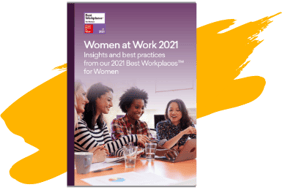
Paving the Way Towards Equity in Your Workplace
Download the 2021 Women at Work publication for more data insights and best practices!
To learn more about our employer recognition programme, please click here.



